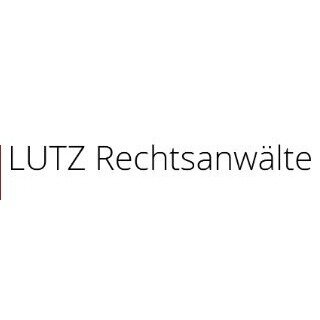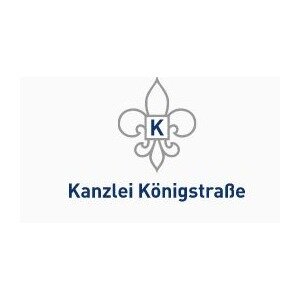Best Renewable & Alternative Energy Lawyers in Stuttgart
Share your needs with us, get contacted by law firms.
Free. Takes 2 min.
List of the best lawyers in Stuttgart, Germany
About Renewable & Alternative Energy Law in Stuttgart, Germany
Stuttgart, the capital of Baden-Württemberg, is a leading city in Germany for renewable and alternative energy initiatives. The region is recognized for its commitment to sustainability and the transition toward clean energy sources like solar, wind, biomass, and hydropower. The legal landscape for renewable and alternative energy in Stuttgart functions under a mix of federal, state, and local regulations that govern how energy is produced, consumed, traded, and subsidized. Whether you are a business, investor, or private individual, understanding the legal framework is crucial when engaging in any renewable energy projects in the area.
Why You May Need a Lawyer
Navigating renewable and alternative energy projects in Stuttgart often involves complex regulatory, environmental, and contractual obligations. Here are some common situations where you might need legal assistance:
- Securing permits for building and operating renewable energy installations such as solar panels, wind turbines, or biogas plants
- Negotiating and drafting contracts for energy purchase agreements or feed-in tariffs
- Understanding and applying for government subsidies or incentives for renewable energy investments
- Complying with environmental and zoning regulations
- Resolving disputes between property owners, investors, or energy providers
- Managing intellectual property for new green technologies
- Advising on mergers, acquisitions, or partnerships related to renewable energy assets
A lawyer experienced in renewable and alternative energy law can help ensure compliance, reduce risks, and safeguard your investments.
Local Laws Overview
The legal framework for renewable and alternative energy in Stuttgart is shaped by both German federal law and regional policies specific to Baden-Württemberg. Key aspects include:
- Renewable Energy Sources Act (EEG): This federal law encourages the production of renewable energy by guaranteeing grid access and providing feed-in tariffs.
- Building and Planning Regulations: Regional and local authorities regulate where and how renewable energy installations can be constructed, taking into account zoning, safety, and environmental protection.
- Incentive Programs: Both federal and state governments offer financial incentives, tax breaks, and grants for renewable energy projects in Stuttgart.
- Grid Connection Requirements: Specific technical and legal standards must be met for connecting renewable energy systems to the public grid.
- Environmental Protection Laws: Energy projects must comply with local and national environmental standards, including impact assessments and emissions control.
The combination of federal guidelines and local municipality rules makes it essential to understand both levels of governance when starting an energy project in Stuttgart.
Frequently Asked Questions
What types of renewable energy projects are popular in Stuttgart?
Solar power, wind energy, biomass, and combined heat and power systems are commonly developed in and around Stuttgart due to regional incentives and suitable landscapes.
Do I need official permits for installing solar panels at my property in Stuttgart?
Yes, depending on the size and location of the installation, permits or approvals may be required from local building authorities.
What government incentives are available for renewable energy in Stuttgart?
Incentives include feed-in tariffs, low-interest loans from public banks, grants, and tax benefits for eligible projects. The specifics may change annually.
Can I sell surplus electricity generated by my renewable installation?
Yes, under the Renewable Energy Sources Act, you can feed surplus electricity into the public grid and receive compensation.
What are feed-in tariffs?
Feed-in tariffs are payments guaranteed by law for renewable electricity fed into the grid, aimed at promoting green energy investment.
Are there zoning restrictions on building wind turbines?
Yes, regional planning laws and municipal zoning restrict where wind turbines can be located, - often to reduce impact on residents and nature protection areas.
How are disputes between neighbors about renewable installations handled?
Disputes are generally resolved through negotiation or legal proceedings, taking into account property law, nuisance regulations, and community planning rules.
What role does environmental protection play in project approval?
Environmental impact assessments are often mandatory for larger projects to safeguard local flora, fauna, and landscapes.
Who is responsible for maintaining renewable energy systems?
The property owner or operator is responsible for ensuring systems are safely maintained and comply with legal standards.
What is the first legal step before starting a renewable energy project?
It is advisable to consult a lawyer to check land use permissions, regulatory requirements, and contractual obligations before proceeding.
Additional Resources
For guidance and more information, consider reaching out to these organizations and authorities:
- Baden-Württemberg Ministry of the Environment, Climate and Energy Sector
- Stuttgart City Administration - Department for Environmental Protection
- German Renewable Energy Federation (BEE)
- Federal Office for Economic Affairs and Export Control (BAFA)
- KfW Development Bank for funding and grants
- German Energy Agency (dena)
These organizations can provide support, up-to-date policy information, and details on funding opportunities.
Next Steps
If you are considering a renewable or alternative energy project in Stuttgart, take the following steps:
- Gather all project details, including location, technology type, and intended scope
- Review general requirements set by local and federal authorities
- Contact a legal professional specializing in renewable and alternative energy law to assess your legal position
- Prepare all necessary documentation for permits, funding applications, and contracts
- Stay updated on regulatory changes and incentive programs
A knowledgeable lawyer can help navigate complex regulations and increase your project's chances for success. Early legal guidance can prevent costly errors and streamline the approval process for your renewable energy initiative in Stuttgart.
Lawzana helps you find the best lawyers and law firms in Stuttgart through a curated and pre-screened list of qualified legal professionals. Our platform offers rankings and detailed profiles of attorneys and law firms, allowing you to compare based on practice areas, including Renewable & Alternative Energy, experience, and client feedback.
Each profile includes a description of the firm's areas of practice, client reviews, team members and partners, year of establishment, spoken languages, office locations, contact information, social media presence, and any published articles or resources. Most firms on our platform speak English and are experienced in both local and international legal matters.
Get a quote from top-rated law firms in Stuttgart, Germany — quickly, securely, and without unnecessary hassle.
Disclaimer:
The information provided on this page is for general informational purposes only and does not constitute legal advice. While we strive to ensure the accuracy and relevance of the content, legal information may change over time, and interpretations of the law can vary. You should always consult with a qualified legal professional for advice specific to your situation.
We disclaim all liability for actions taken or not taken based on the content of this page. If you believe any information is incorrect or outdated, please contact us, and we will review and update it where appropriate.











